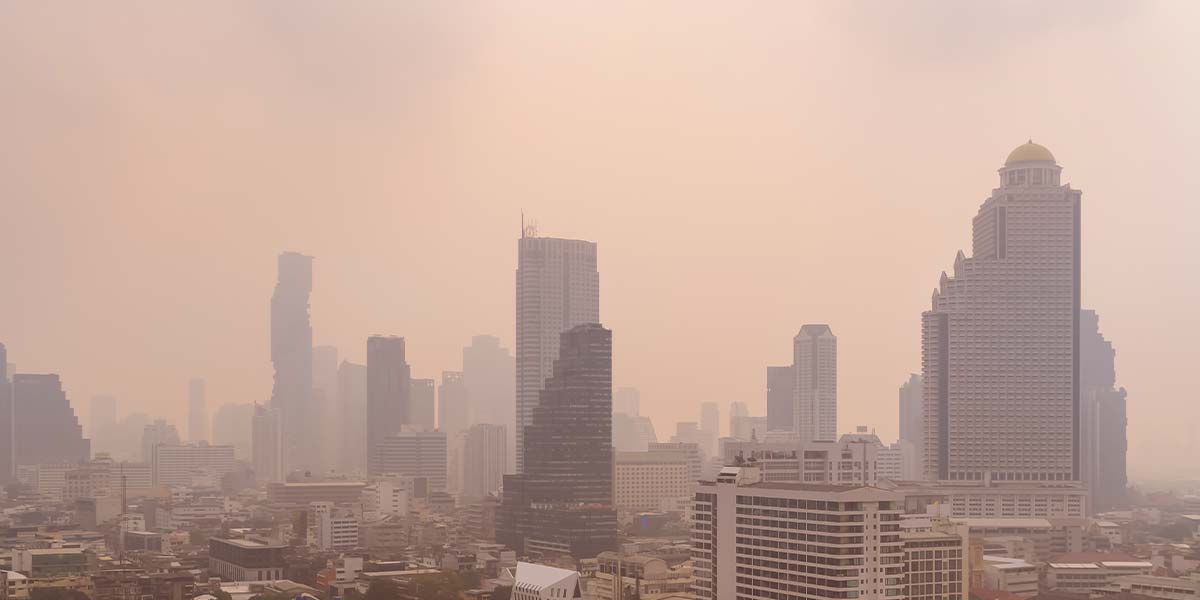As per a report from Kasikorn Research Centre (KResearch) on January 23, if Bangkok’s PM2.5 pollution were to be left unattended for a month, the damage to the city and its surrounding areas’ economy could mount up to THB 3-6 billion ($89-178 million).
PM2.5 refers to 2.5 micrometers in diameter fine particulate, which could lead to chronic health issues such as lung and heart disease following a prolonged exposure to the particle.
Kevalin Wangpichayasuk, KResearch’s deputy managing director, said that the economic ramifications from the pollution could affect across sectors, including healthcare and tourism, as health complications could weaken productivity, which led to revenue losses for outdoor businesses.
In the meantime, the Federation of Thai Industries (FTI) and the Thai Chamber of Commerce (TCC) urged the government to step up its effort to tackle the PM2.5 issues, stressing its impact on tourism.
Kriengkrai Thiennukul, chair of FTI, said that the key issues of pollution, such as crop burning, needed to be dealt with by the government imposing strict law enforcement.
In addition, Wisit Limluecha, TCC Vice Chairman, suggested that Thailand should pursue regional cooperation with ASEAN members to tackle pollution in the long term. He also added Thailand should learn the method used by other countries, such as the United States, to further improve the effectiveness of pollution control.
PM2.5 pollution will soon turn into a global crisis, and the government must address it with the utmost importance, Wisit remarked.





